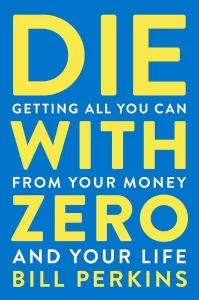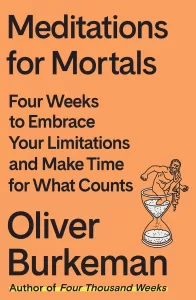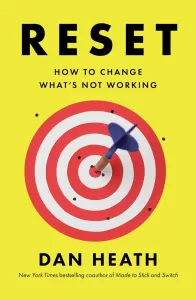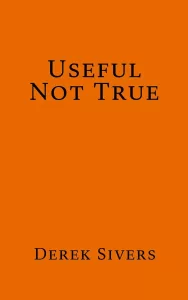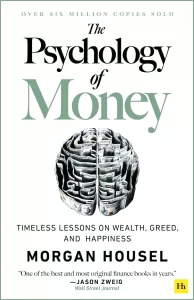Book Review: “The Almanack of Naval Ravikant”
Book: The Almanack of Naval Ravikant compiled by Eric Jorgenson
Reviewer: Bobby Powers
My Thoughts: 9 of 10
Naval is an icon on Twitter (currently 2.2M followers), one of the most well-known investors in the world, and an iconoclastic sage. He's never published a book with his thoughts, but he's published thousands of tweets and made numerous podcast appearances—all of which gush wisdom that has impacted millions of people. Eric Jorgenson is a fan of Naval's who decided to collect much of Naval's ideas and aphorisms into this book. I'm glad he did!
Although the book is repetitive in parts (the only reason I didn't give it 10 stars), it's one of the most impactful books I've ever read. Below you will find the most notes I've taken on any book ever. Why? Because there was just that much I wanted to document and remember later. Hopefully you get something out of it.
What I Learned from the Book
Contrary to popular opinion, happiness and wealth are not states of being—they are skills that one can learn. Naval believes that if he lived 1,000 times, he could be successful 999 times because he's learned to set up systems that prevent colossal failure. And after reading this book, I'm inclined to agree with him. He's learned the foundational principles that undergird the creation of wealth, wisdom, and happiness. Much of it comes back to pouring hours of time into reading and learning, finding what you're uniquely cut out to do in the world, and applying leverage to that skill (writing code, publishing content online, etc.).
Selected Quotes and Ideas from the Book
Brief Background on Naval
In case you're unfamiliar with Naval Ravikant, here are a few quick tidbits about his career:
- CEO and co-founder of AngelList
- Co-founded Vast.com and Epinions
- Angel investor in Twitter, Uber, Yammer, OpenDNS, Postmates, and 200+ other companies
- Previously named "Angel Investor of the Year" by TechCrunch
Building Wealth
- For more info, check out Naval's famous tweetstorm: How to Get Rich (without getting lucky)
- "Making money is not a thing you do—it's a skill you learn."
- "I like to think that if I lost all my money and you dropped me on a random street in any English-speaking country, within five or ten years I'd be wealthy again because it's just a skillset I've developed that anyone can develop."
- "Wealth is having assets that earn while you sl\eep...You're not going to get rich renting out your time. You must own equity—a piece of a business—to gain your financial freedom."
- "Without ownership, your inputs are very closely tied to your outputs...Without ownership, when you're sleeping, you're not earning. When you're retired, you're not earning. When you're on vacation, you're not earning. And you can't earn nonlinearly."
- "You will get rich by giving society what it wants but does not yet know how to get. At scale."
- "All the returns in life, whether in wealth, relationships, or knowledge, come from compound interest."
- "One thing I figured out later in life is generally (at least in the tech business in Silicon Valley), great people have great outcomes. You just have to be patient."
- "You will never be worth more than you think you're worth."
- "The business world has many people playing zero sum games and a few playing positive sum games searching for each other in the crowd."
- "People who live far below their means enjoy a freedom that people busy upgrading their lifestyles can't fathom."
Leverage
- "The most interesting and the most important form of leverage is the idea of products that have no marginal cost of replication. This is the new form of leverage. This was only invented in the last few hundred years. It started with the printing press. It accelerated with broadcast media, and now it's really blown up with the internet and with coding...This book is a form of leverage. Long ago, I would have had to sit in a lecture hall and lecture each of you personally. I would have maybe reached a few hundred people, and that would have been that. This newest form of leverage is where all the new fortunes are made, all the new billionaires."
- "Code and media are permissionless leverage...You can create software and media that works for you while you sleep...If you can't code, write books and blogs, record videos and podcasts."
- "Just from being marginally better, like running a quarter mile a fraction of a second faster, some people get paid a lot more—orders of magnitude more. Leverage magnifies those differences even more."
First Principles
- "If you go to the library and there's a book you cannot understand, you have to dig down and say, 'What is the foundation required for me to learn this?' Foundations are super important."
- "Foundations are key. It's much better to be at 9/10 or 10/10 on foundations than to try and get super deep into things."
- "There is no skill called 'business.' Avoid business magazines and business classes. Study microeconomics, game theory, psychology, persuasion, ethics, mathematics, and computers. Reading is faster than listening. Doing is faster than watching."
- "The really smart thinkers are clear thinkers. They understand the basics at a very, very fundamental level. I would rather understand the basics really well than memorize all kinds of complicated concepts I can't stitch together and can't rederive from the basics. If you can't rederive concepts from the basics as you need them, you're lost. You're just memorizing."
- "Any belief you took in a package (ex. Democrat, Catholic, American) is suspect and should be re-evaluated from base principles."
- "I think basic mathematics is really underrated. If you're going to make money, if you're going to invest money, your basic math should be really good. You don't need to learn geometry, trigonometry, calculus, or any of the complicated stuff if you're just going into business. But you want arithmetic, probability, and statistics. Those are extremely important. Crack open a basic math book, and make sure you are really good at multiplying, dividing, compounding, probability, and statistics."
Reading
- "Basically, the library was my after-school center. After I came back from school, I would just go straight to the library and hang out there until they closed."
- "I spent a lot of time reading. My only real friends were books."
- "Reading science, math, and philosophy one hour per day will likely put you at the upper echelon of human success within seven years."
- "The genuine love for reading itself, when cultivated, is a superpower. We live in the age of Alexandria, when every book and every piece of knowledge ever written down is a fingertip away. The means of learning are abundant—it's the desire to learn that is scarce."
- "These days, I find myself rereading as much (or more) as I do reading...It's really more about identifying the great books for you because different books speak to different people. Then, you can really absorb those."
- "Reading a book isn't a race—the better the book, the more slowly it should be absorbed."
- "I could not tell you specific passages or quotes from books. At some deep level, you absorb them, and they become threads in the tapestry of your psyche."
- "I probably read one to two hours a day. That puts me in the top .00001 percent. I think that alone accounts for any material success I've had in my life and any intelligence I might have."
- "It's not about 'educated' vs. 'uneducated.' It's about 'likes to read' and 'doesn't like to read.'"
- "Read the greats in math, science, and philosophy. Ignore your contemporaries and news."
- "When you're reading a book and you're confused, that confusion is similar to the pain you get in the gym when you're working out. But you're building mental muscles instead of physical muscles. Learn how to learn and read the books."
- "Any book that survived for two thousand years has been filtered through many people. The general principles are more likely to be correct."
- "The truth is, I don't read for self-improvement. I read out of curiosity and interest. The best book is the one you'll devour."
- "Reading (learning) is the ultimate meta-skill and can be traded for anything else."
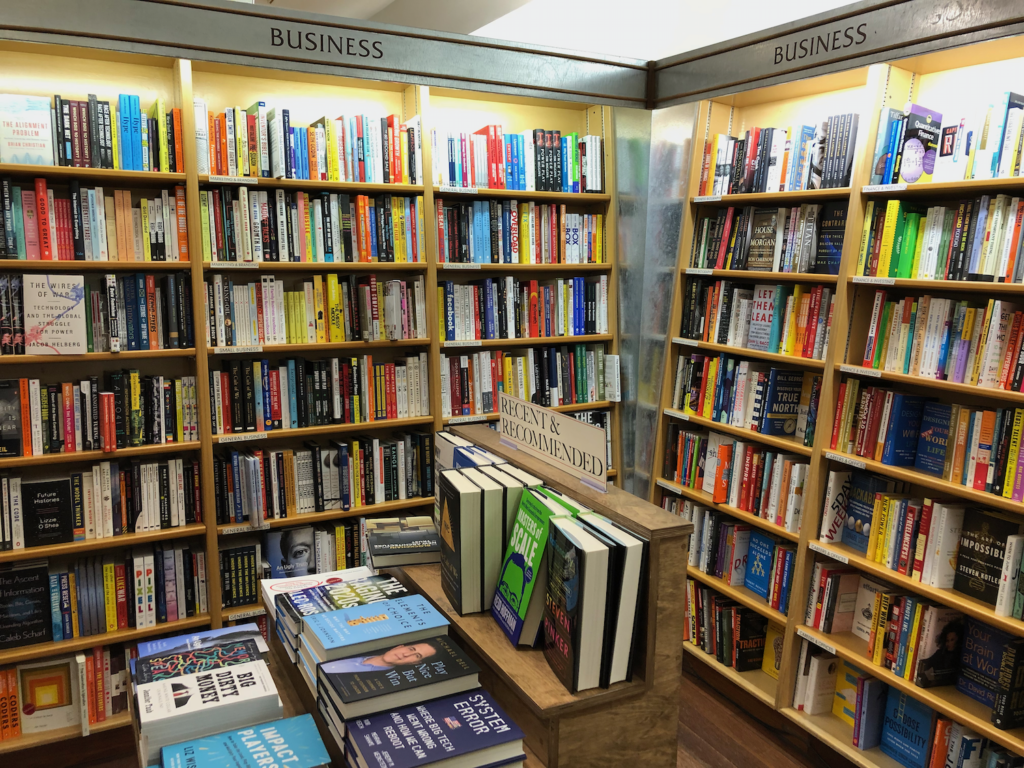
Find What You're Best At
- "Specific knowledge is knowledge you cannot be trained for...Specific knowledge is found by pursuing your genuine curiosity and passion rather than whatever is hot right now. Building specific knowledge will feel like play to you but will look like work to others."
- "Become the best in the world at what you do. Keep redefining what you do until this is true."
- "When I talk about specific knowledge, I mean figure out what you were doing as a kid or teenager almost effortlessly. Something you didn't even consider a skill, but people around you noticed. Your mother or your best friend growing up would know."
- "Apply specific knowledge with leverage and eventually, you will get what you deserve."
- "You can only achieve mastery in one or two things. It's usually things you're obsessed about."
- "No one can compete with you on being you. Most of life is a search for who and what needs you the most."
- "Figure out what you're good at, and start helping other people with it. Give it away. Pay it forward. Karma works because people are consistent. On a long enough timescale, you will attract what you project."
Building Wisdom and Judgment
- "You cannot hide anything from yourself. Your own failures are written within your psyche, and they are obvious to you. If you have too many of these moral shortcomings, you will not respect yourself."
- "The more desire I have for something to work out a certain way, the less likely I am to see the truth."
- "It's actually really important to have empty space. If you don't have a day or two every week in your calendar where you're not always in meetings, and you're not always busy, then you're not going to be able to think."
- "It's only after you're bored you have the great ideas. It's never going to be when you're stressed, or busy, running around or rushed. Make the time."
- "Tension is who you think you should be. Relaxation is who you are." -Buddhist saying
- "The direction you're heading in matters more than how fast you move, especially with leverage...Just pick the right direction to start walking in, and start walking."
- "I try not to have too much I've pre-decided. I think creating identities and labels locks you in and keeps you from seeing the truth...To be honest, speak without identity."
- "I used to identify as libertarian, but then I would find myself defending positions I hadn't really thought through because they're a part of the libertarian canon. If all your beliefs line up into neat little bundles, you should be highly suspicious."
- "Decision-making is everything. In fact, someone who makes decisions right 80 percent of the time instead of 70 percent of the time will be valued and compensated in the market hundreds of times more."
- "The more you know, the less you diversify."
- "Simple heuristic: If you're evenly split on a difficult decision, take the path more painful in the short term."
Building Happiness
- "Happiness is the state when nothing is missing."
- "The more present I am, the happier and more content I will be."
- "Every desire is a chosen unhappiness."
- "The mistake over and over and over is to say, 'Oh, I'll be happy when I get that thing,' whatever it is. That is the fundamental mistake we all make, 24/7, all day long. Desire is a contract you make with yourself to be unhappy until you get what you want. I don't think most of us realize that's what it is. I think we go about desiring things all day long and then wonder why we're unhappy."
- "Happiness is being satisfied with what you have. Success comes from dissatisfaction. Choose."
- "Confucius says you have two lives, and the second one begins when you realize you only have one. When and how did your second life begin?"
- "You can get almost anything you want out of life, as long as it's one thing and you want it far more than anything else."
- "I don't think life is that hard. I think we make it hard. One of the things I'm trying to get rid of is the word 'should.' Whenever the word 'should' creeps up in your mind, it's guilt or social programming. Doing something because you 'should' basically means you don't actually want to do it. It's just making you miserable, so I'm trying to eliminate as many 'shoulds' from my life as possible."
- "My most surprising discovery in the last five years is that peace and happiness are skills."
- "There's the 'five chimps theory' where you can predict a chimp's behavior by the five chimps it hangs out with the most. I think that applies to humans as well...The people who are the most happy and optimistic choose the right five chimps."
- "If you can't see yourself working with someone for life, don't work with them for a day."
- "To make an original contribution, you have to be irrationally obsessed with something."
- "An emotion is our evolved biology predicting the future impact of a current event. In modern settings, it's usually exaggerated or wrong."
- "If there's something you want to do later, do it now. There is no 'later.'"
Random Nuggets
- "If you have nothing in your life, but you have at least one person that loves you unconditionally, it'll do wonders for your self-esteem."
- "The best jobs are neither decreed nor degreed. They are creative expressions of continuous learners in free markets."
- "Basically, if someone is using a lot of fancy words and a lot of big concepts, they probably don't know what they're talking about. I think the smartest people can explain things to a child. If you can't explain it to a child, then you don't know it."
- "You absolutely need habits to function. You cannot solve every problem in life as if it is the first time it's thrown at you."
- "When everyone is sick, we no longer consider it a disease."
- "Impatience with actions, patience with results."
Think you’d like this book?
Other books you may enjoy:
A Game Plan for Life by John Wooden and Don Yaeger
Principles: Life and Work by Ray Dalio
Other notable books by the author:
The Anthology of Balaji edited by Eric Jorgenson


